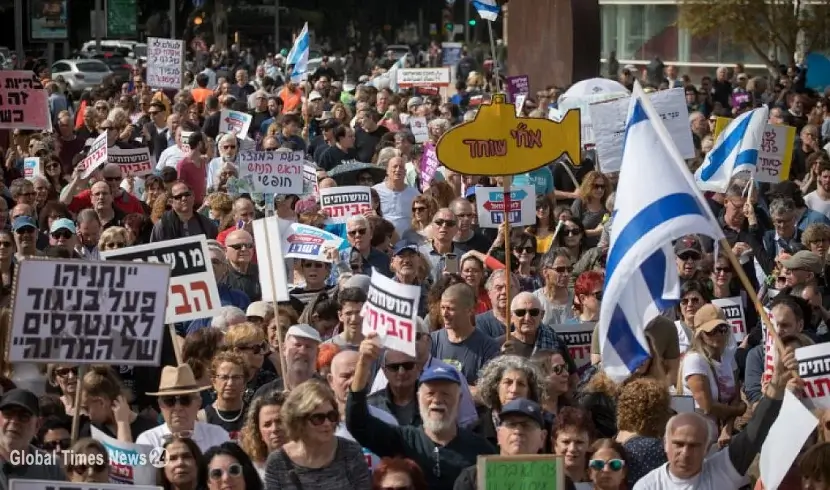Analysis of House of Commons library data has found that the political crisis in Britain could cost the taxpayer up to £709,000 in severance payments to former ministers and whips, UK-based media outlet Sky News reported.
Rishi Sunak on Tuesday (October 25) become the new Prime Minister of the United Kingdom after a prolonged political crisis gripped the nation ever since reports emerged that multiple COVID-19 breaching parties were held at Downing Street when such gatherings were banned across the country.
Since the start of this year, 79 government ministers and whips have either resigned or been fired. But regardless of how long they worked in the office, 71 of them are probably eligible for payouts averaging more than £10,000. Two are reportedly returning the funds in full or in part.
Those who leave their positions within three weeks are not eligible to receive the lump amount. As long as they do not return to a paid government position by November 15, anybody who was let go by Sunak on Tuesday will be eligible for a reward, the report added.
The report says that its calculations are based on what they will be entitled to if they sit on the opposition benches throughout that time.
In the list, the report mentioned some names who are eligible: Brandon Lewis (£34,000), Liz Truss (£385 per day), Kwasi Kwarteng (£444 per day), Conor Burns (£7,290), Chris Pincher (£8,000).
The report also mentioned that some have rejected severance payments or donated them to charity.
After less than 36 hours as Boris Johnson's education secretary, Michelle Donelan was eligible for a salary of roughly £17,000, but she declined it. In July, she told Sky News: "I said that if I wasn't able to reject the money I would give it to a charity but I rejected it."
"It was taxpayers' money so I think it would be wrong for me to take taxpayers' money and then decide which charity I wanted to give it to so I was very clear that if I was able to reject it, then I would reject it, so I did," she added.
UK political crisis
The former finance chief has inherited the economy that was headed for a recession even before the recent turmoil triggered by Liz Truss. Data Monday showed Britain's economic downturn worsened in October, with private-sector output at a 21-month low.
Chris Williamson, the chief business economist at S&P Global Market Intelligence that helped compile the figures, noted: "October's flash PMI data showed the pace of economic decline gathering momentum after the recent political and financial market upheavals."
"The heightened political and economic uncertainty has caused business activity to fall at a rate not seen since the global financial crisis in 2009 if pandemic lockdown months are excluded," Williamson added.
News ID : 1424
 How Mohammed bin Salman Burdened Saudi Arabia of Heavy Loans and Debts
Bussiness / Opinion / Breaking News
How Mohammed bin Salman Burdened Saudi Arabia of Heavy Loans and Debts
Bussiness / Opinion / Breaking News
 Iranian oil revenues surge with new customers, refineries
Bussiness / Breaking News
Iranian oil revenues surge with new customers, refineries
Bussiness / Breaking News
 EU imposes additional tariffs on Chinese electric cars
Bussiness / Breaking News
EU imposes additional tariffs on Chinese electric cars
Bussiness / Breaking News
 20 Cybersecurity Business Ideas To Become A Millionaire in 2024
Bussiness / Breaking News
20 Cybersecurity Business Ideas To Become A Millionaire in 2024
Bussiness / Breaking News
 Beijing-linked Cathay Pacific rival eyes $1.8b plane order
Bussiness
Beijing-linked Cathay Pacific rival eyes $1.8b plane order
Bussiness
 UK’s Johnson faces calls to quit after paying police fine for birthday party
World
UK’s Johnson faces calls to quit after paying police fine for birthday party
World
 Boris Johnson announces dropping out of PM contest
World / Breaking News
Boris Johnson announces dropping out of PM contest
World / Breaking News
 Rishi Sunak to become new UK prime minister
World / Breaking News
Rishi Sunak to become new UK prime minister
World / Breaking News
 Intensifying ethnic polarity in Israel reaches deadline of election campaign
World / Opinion
Intensifying ethnic polarity in Israel reaches deadline of election campaign
World / Opinion
 Sunak to hold first cabinet meeting, face opposition as new UK PM
World / Breaking News
Sunak to hold first cabinet meeting, face opposition as new UK PM
World / Breaking News